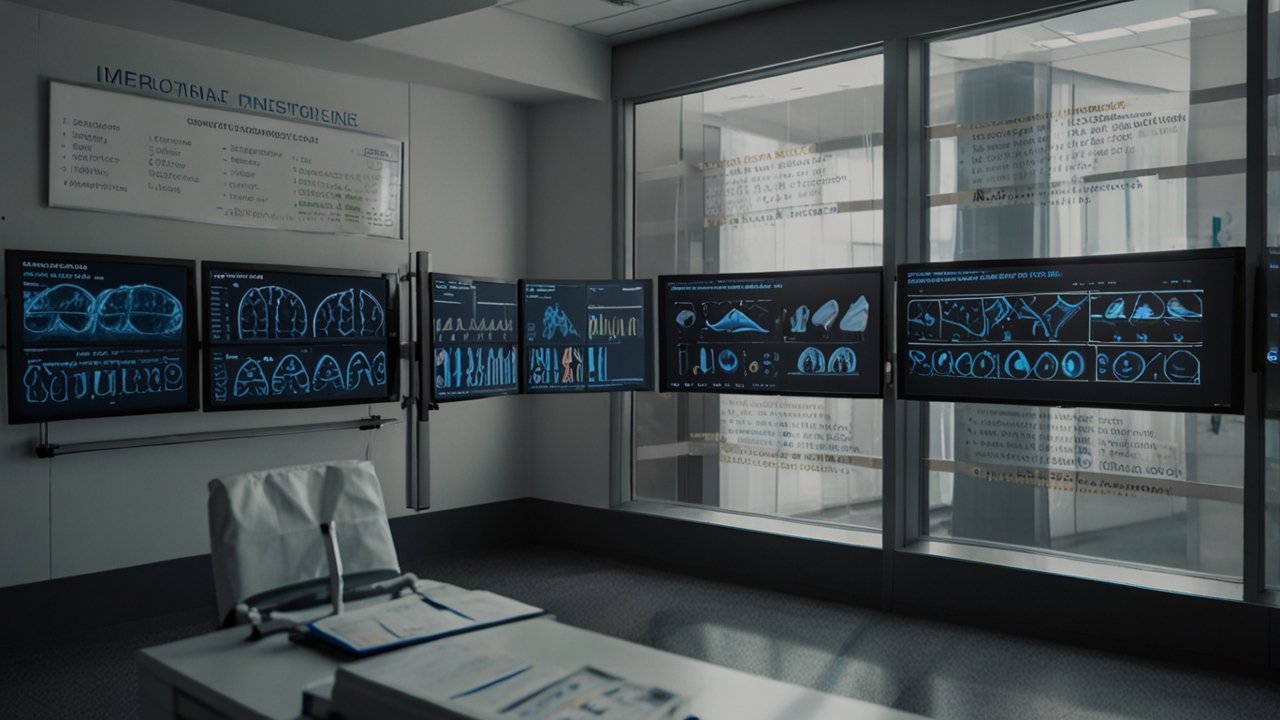Personalized Medicine: 7 Transformative Advances
Welcome to our in‐depth look at how rapid developments in healthcare are reshaping treatment. In this article, we explore the journey from early breakthroughs to modern innovations. We invite you to join us in discovering how advances are making care more tailored and effective.
This article is designed for readers of all backgrounds. We explain complex ideas using friendly language and concrete examples. Share your thoughts and experiences as you explore these transformative advances.
For more information about our insights, visit our Insights page.
📑 Table of Contents
- Introduction to Personalized Medicine
- Evolution and History of Personalized Medicine
- How Individual Treatment Enhances Personalized Medicine
- Genomic Therapy Systems and Their Applications
- Real-World Case Studies of Personalized Medicine
- Precision Healthcare in Modern Personalized Medicine Solutions
- Future Trends: Medical Revolution and Beyond
- Insightful Perspectives on Personalized Medicine
- FAQ
- Conclusion
Introduction to Personalized Medicine
Defining the Concept
The journey into advanced care starts with a clear understanding of its core approach. The focus here is on how medical care is increasingly tailored to each patient. We see a shift from uniform treatment strategies to care that adapts to individual specifics.
Historically, efforts to tailor care have been evident for centuries. Today, modern science draws on detailed analysis of biological data for each patient. This evolution has been fueled by breakthroughs that integrate diverse scientific fields.
In your experience, have you noticed a greater emphasis on treatments designed just for you? Explore how the fusion of technology and care is revolutionizing health management. For more details on emerging methods, check out Cutting-Edge Technologies.
Importance in Modern Healthcare
Today’s healthcare systems benefit from careful coordination of tailored diagnostics and treatments. Every step of the care process is enhanced by data insights and scientific advancement. This targeted approach improves outcomes and optimizes medications.
The rationale behind such care hinges on combining multiple data points—from genetics to environmental factors. This methodology not only supports better outcomes but also reduces unnecessary treatments. How do you think such targeted strategies impact your personal well-being?
Are you ready to see how these approaches are transforming care? Reflect on these ideas as you move forward in our exploration.
Evolution and History of Personalized Medicine
Historical Milestones
The roots of advanced care stretch back centuries, yet modern iterations began taking shape in the mid-20th century. Early breakthroughs in biochemical sciences and pharmacogenetics laid a strong foundation. A critical moment came in 1999 when a renowned business journal introduced the concept to a wide audience.
This term rapidly gained prominence as experts linked drug responses with specific genetic markers. The formation of collaborative initiatives provided a blueprint for mapping genetic variations. Detailed historical analysis is available in studies such as the one from NIH historical overview [PMC].
Have you ever wondered how historical advances paved the way for today’s innovations?
Advances in Biochemical Sciences
The sequencing of the human genome in 2003 was a breakthrough that amplified our understanding of disease predispositions and treatment responses. Biochemical techniques evolved rapidly thereafter, integrating novel strategies into everyday healthcare. As science progressed, next-generation sequencing (NGS) emerged as a cost-effective and precise tool.
This advancement ushered in the capacity to analyze individual genomes in mere days. The subsequent innovations found in established research demonstrate a remarkable evolution. To learn more about this evolution, explore Inside Precision Medicine‘s detailed analysis.
Does the fusion of history and modern science inspire you to learn more about treatment evolution?
How Individual Treatment Enhances Personalized Medicine
Tailored Medical Care
One of the most compelling aspects of modern care is the ability to deliver tailored treatment. This care emphasizes fine-tuning medications and therapies based on complex biological profiles. Advances in fields such as pharmacogenetics have revolutionized medication management.
For example, using genetic information, hospitals now adjust drug doses and select the most effective treatment regimens. This approach minimizes adverse effects and maximizes therapeutic benefits. Information from the ACC’s detailed historical review reinforces how tailoring medications has evolved over the decades.
Have you experienced a situation where treatment seemed perfectly designed for your needs?
Benefits and Challenges
While the benefits of individual care are numerous, challenges also present themselves. Integration of vast datasets requires sophisticated tools and careful regulation. For instance, data privacy is a critical issue as more personal information is utilized for targeted treatments.
The benefits include improved outcomes, fewer side effects, and a reduction in unnecessary procedures. Conversely, the complexity of managing such detailed data demands rigorous system development and regulatory oversight. Have you considered what challenges might arise as care becomes even more data-driven?
Reflect on how overcoming these challenges can further refine care for everyone.
Also, discover more insights on the topic by visiting Artificial Intelligence.
Genomic Therapy Systems and Their Applications
Innovations in Genomic Sequencing
Next-generation sequencing (NGS) has transformed the way researchers identify genetic mutations. This technology allows for rapid, cost-effective analysis of complex genomes. Its impact on identifying disease risk and guiding treatments is profound.
Scientific studies have shown that NGS is critical in detecting small genetic variants that influence treatment responses. The speed and accuracy of this technique support effective diagnostic workflows. You can read more on its detailed benefits in the study from NIH historical milestones [PMC].
What possibilities do you see emerging from this technology in your personal care?
Future of Genome Editing
Genome editing technologies such as CRISPR and CAR-T therapy promise to transform future treatments. These systems allow for highly targeted interventions, particularly in the context of cancer and rare disorders. As these techniques mature, the ability to modify genes safely is becoming a reality.
Ongoing research continues to refine these technologies, making them more precise and efficient. Innovations in genome editing help to reduce treatment side effects and open new avenues for curing genetic diseases. For a deeper dive into these advancements, consider the insights shared by Tech Innovations.
How might you feel about a future where therapies can correct issues at the genetic level?
Real-World Case Studies of Personalized Medicine
Oncology Success Stories
In the realm of cancer treatment, the use of comprehensive genomic profiling has become transformative. Tests such as FoundationOne CDx allow oncologists to match patients with drugs that target specific genetic mutations. These tailored therapies have improved survival rates and reduced unnecessary treatments.
The success story of this approach is well documented. Major U.S. hospitals report fewer adverse drug reactions through the application of pharmacogenetic testing. Detailed market trends are further illuminated by reports from Towards Healthcare.
Have you or someone you know experienced the benefits of such targeted cancer therapies?
Global Applications in Rare Diseases
Advanced care is also making a significant impact in treating rare disorders. The European Union’s Horizon 2020 program and initiatives in Asia, such as Japan’s SCRUM-Japan project, illustrate these successes. These efforts have led to the development of novel gene therapies for conditions like spinal muscular atrophy.
In Australia, national genomics initiatives are already identifying rare pediatric diseases and tailoring therapies accordingly. Real-world data from diverse regions helps translate these efforts into concrete patient benefits. What examples can you share about advancements in treating rare conditions?
For more examples, explore the insights from Tech Developments.
Comprehensive Comparison of Case Studies
| Example | Inspiration | Application/Impact | Region |
|---|---|---|---|
| FoundationOne CDx | Genomic Profiling | Oncology targeted therapies | USA |
| Horizon 2020 | Gene Therapy Initiatives | Treating rare inherited disorders | Europe |
| SCRUM-Japan | Large-scale Genomic Screening | Cancer diagnosis improvement | Japan |
| KoGES | Population Genomics | Public health risk assessments | South Korea |
| Genomics Health Futures Mission | National Genomics Programs | Rare disease diagnosis enhancement | Australia |
Do these global case studies inspire you to believe in the potential of advanced care?
Precision Healthcare in Modern Personalized Medicine Solutions
Integration of AI and Big Data
The integration of AI with massive datasets has paved a new way to understand patient profiles. By analyzing clinical records alongside genomic data, algorithms optimize treatment decisions in real time. This integration continually refines therapy selections and improves outcomes.
Healthcare providers use machine learning to detect patterns that might remain hidden in manual reviews. This synthesis of technology and medicine drives modern solutions. What benefits do you think you might experience from such integrated systems?
With more insights into current trends available online, you can see how technology is reshaping care.
Current Market Trends
The current market for advanced care is booming. Valued at approximately $529.28 billion in 2023, it is projected to reach $1.26 trillion by 2034. An impressive compound annual growth rate of 8.2% speaks to the rapid adoption of these solutions.
Hospitals globally are at the forefront, incorporating both genomic diagnostics and data analytics into standard practice. Major industry moves include high-profile acquisitions and strategic partnerships. What market developments do you believe will shape future care?
These trends are transforming the way care is delivered every day.
Future Trends: Medical Revolution and Beyond
Technological Innovations on the Horizon
The future promises further integration of advanced technologies into care delivery. Innovations in AI, cost reduction in sequencing, and emerging digital health tools are set to transform diagnostics and treatment. These changes are expected to propel the industry into a new era.
Ongoing investments in research and regulatory harmonization will accelerate these developments. The continuous feedback between clinical practice and novel algorithms supports a dynamic learning healthcare system. What new innovations do you think will have the greatest impact in the coming years?
The speed at which these innovations are emerging is both exciting and transformative.
Global Impact and Regulatory Challenges
As advanced care becomes more widespread, countries worldwide face both opportunities and challenges. Harmonization of regulations and addressing data privacy are at the forefront of these efforts. Stakeholders are working together to establish global standards that support growth while protecting patients.
This balanced approach ensures innovation flourishes while ethical considerations are addressed. Collaborative frameworks are emerging to support international research. How do you envision the resolution of these challenges impacting the future of care?
The global community’s response to these issues will ultimately shape the future of healthcare delivery.
Insightful Perspectives on Personalized Medicine
This fascinating narrative unfolds as researchers and practitioners continually seek new ways to elevate care practices. Groundbreaking studies and innovative strategies combine to form an approach that places state-of-the-art techniques at the heart of treatment. Over recent decades, a series of transformative shifts have redefined the landscape of health management.
The journey has been marked by unprecedented breakthroughs that bridge art and science. With continual learning and adaptation, engineers and scientists blend data with real-world application to create solutions that are both elegant and efficient. In many respects, this evolving field has become a canvas painted with modern ingenuity.
Cutting-edge methods are building upon decades of experience and insight. From integrating advanced data analysis to developing pioneering tools, observers are captivated by the convergence of technology and practice. The dedication of countless professionals propels this evolution forward. Every achievement in this arena bears testament to the commitment to improved care, heralding a future where the possibilities seem boundless.
Words cannot fully capture the spirit of this surge of innovation and the tremendous potential that lies ahead. Through collaboration and determination, the path forward remains both inspiring and promising. With each step, the journey continues to challenge conventional boundaries and offer fresh visions of what the future may hold. The narrative leaves us with an enduring belief in progress and compassionate breakthroughs that prepare us for the next chapter.
FAQ
What is the foundation of advanced healthcare concepts?
These ideas are deeply rooted in the evolution of medical science, leveraging genetic insights and technological advancements to tailor treatments for each patient.
How did historical research influence modern treatment strategies?
Historical milestones, such as the sequencing of the human genome and breakthroughs in biochemical research, set the stage for data-driven and tailored care approaches.
What are the main benefits of customized care systems?
The benefits include decreased medication side effects, improved outcomes, and streamlined treatment processes achieved through accurate diagnostics and therapy matching.
Are there challenges associated with integrating advanced data analytics into healthcare?
Yes, challenges such as data privacy, regulatory harmonization, and the need for sophisticated analytical tools must be addressed to ensure safe and effective implementation.
How is technology shaping the future of global care?
Emerging technologies like AI, genome editing, and advanced sequencing are central to at once transforming diagnostics and treatment avenues, thereby opening new possibilities for patient care worldwide.
Conclusion
The journey through these transformative advances shows how modern care is reshaping the treatment landscape. Each development builds on decades of research and innovation, offering enhanced outcomes for patients worldwide.
We hope that sharing these insights inspires you to explore and appreciate the nuanced progress in advanced care. Do you believe this approach could improve your healthcare experience?
For more details or to share your thoughts, feel free to Contact us. Your engagement and feedback drive the future of this exciting evolution in care.




















Leave a Reply